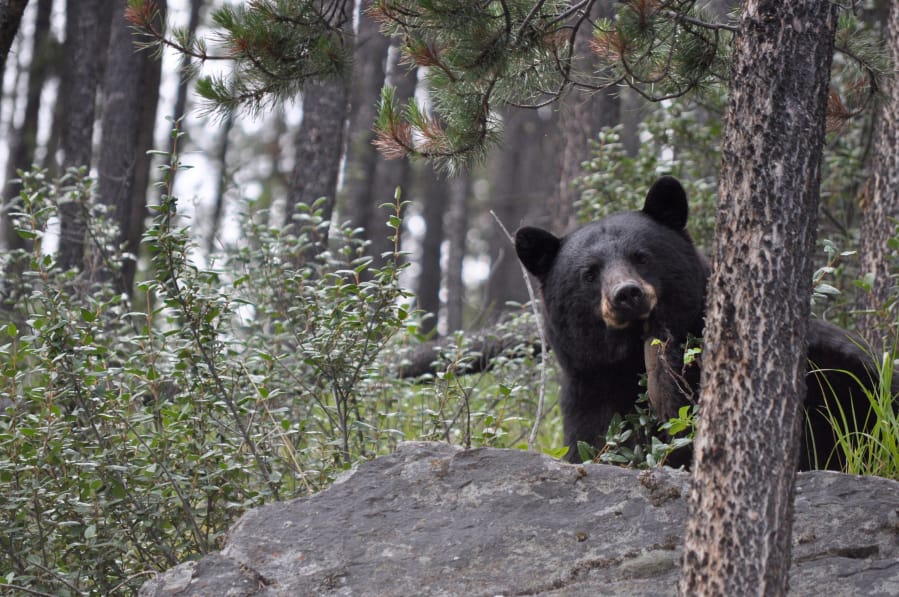People have encounters with animals every day, even in their own back yards, but some are not as intimidating as a bear.
Bears are resourceful and curious creatures. They can travel over 15 miles a day, be known to run as fast as 30 miles per hour, and are able to eat as much as 20,000 calories in one day.
According to wildlife officials, most human-bear interactions that lead to complaints are caused by humans. Garbage cans, pet food, gardens, and fruit trees can bring bears dangerously close to homes, businesses, schools, and people.
Since the spring of 2020, the Colville Tribes Fish and Wildlife Department has received 20 bear complaints from local residents and business owners and wildlife staff says that’s usual for this time of year.



